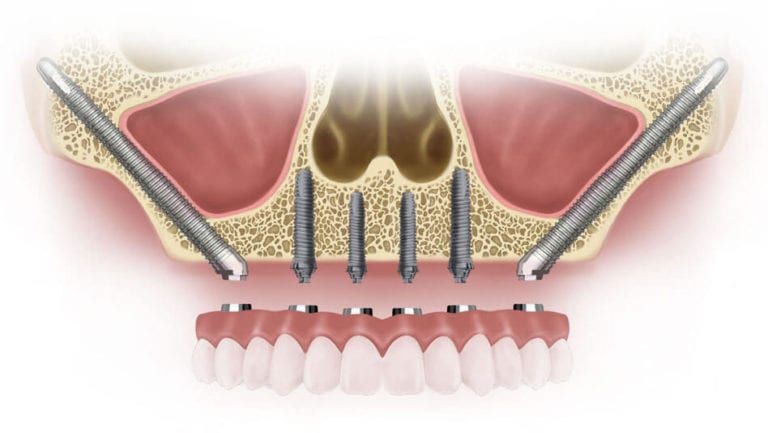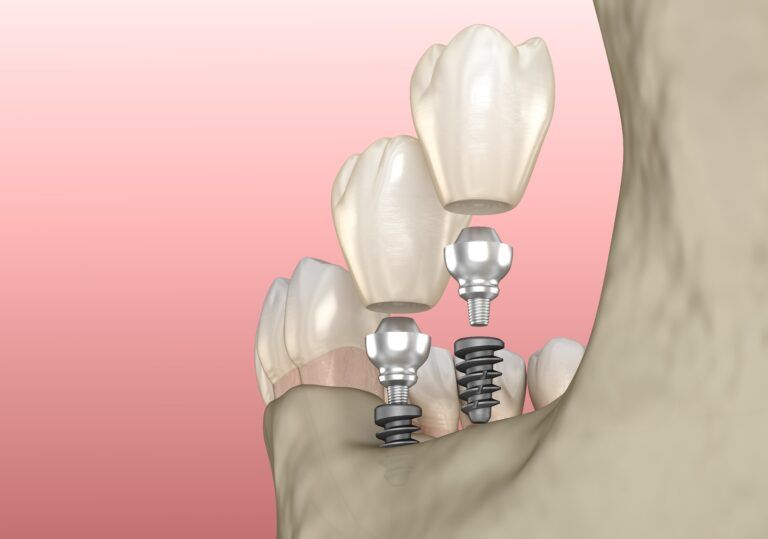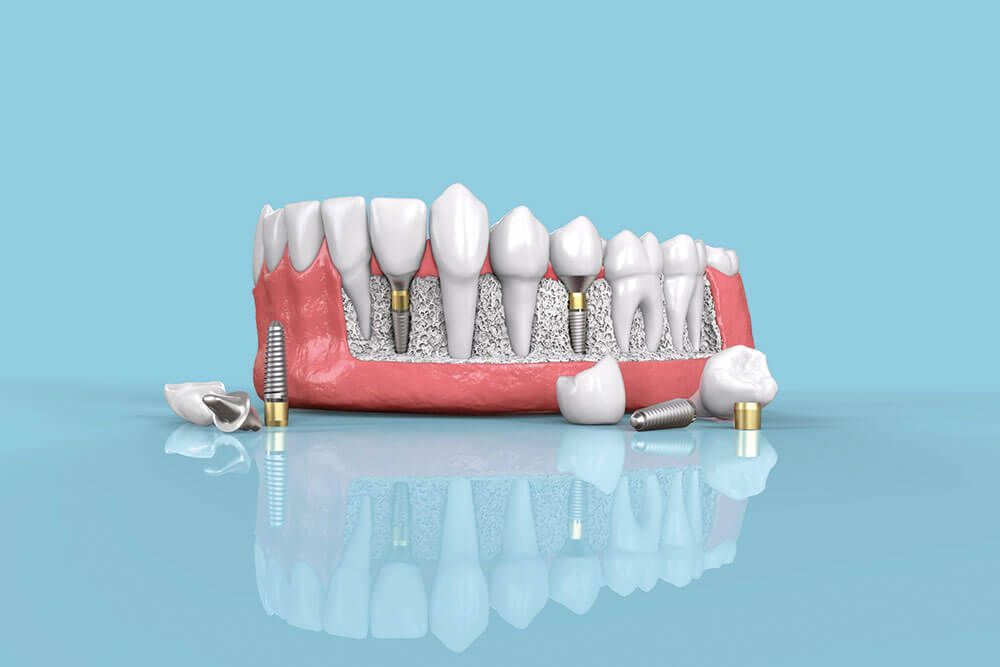Dental implants have revolutionized modern dentistry, providing patients with a long-lasting solution for missing teeth. These artificial tooth roots offer superior stability and natural aesthetics compared to traditional prosthetics like dentures and bridges. While standard dental implants are suitable for most patients, there are instances where specialized dental implants become necessary. In this blog, we will explore the different types of specialized dental implants and when they are required to restore oral health and function effectively.
Types of Specialized Dental Implants
Specialized dental implants are designed to address specific challenges in tooth replacement, catering to patients with unique dental needs. Here are some types of specialized dental implants:
Zygomatic Implants:

Zygomatic implants are longer and more robust than traditional implants, ranging from 30 to 52.5 mm in length. They are anchored in the zygomatic bone (cheekbone) instead of the maxillary (upper jaw) bone. These implants are typically used when a patient has severe bone loss in the upper jaw, and traditional implants cannot be placed due to insufficient bone density. By anchoring into the zygoma, they provide a stable foundation for full-arch restorations, ensuring successful tooth replacement even in cases of extreme bone resorption.
All-on-4/All-on-6 Implants:
The All-on-4 and All-on-6 dental implants are innovative techniques for full-arch restoration. The “All-on” concept refers to placing a fixed prosthesis (denture or bridge) on just four (All-on-4) or six (All-on-6) strategically positioned implants in the jawbone. This approach is particularly beneficial for patients who are edentulous (have lost all their teeth) or have severely compromised teeth. The strategic placement of the implants provides sufficient support for an entire arch of artificial teeth, offering excellent aesthetics, function, and stability.
Mini Dental Implants:
Mini dental implants (MDIs) are smaller in diameter (ranging from 1.8 to 3.0 mm) and shorter than traditional dental implants. They are primarily used in situations where the available space or bone density is limited. Mini dental implants can be utilized in areas where standard implants may not fit, such as the front of the mouth. They are also commonly used to stabilize removable dentures, providing a more secure and comfortable fit for denture wearers.
Basal Implants (Bicortical or Cortical Implants):
Basal implants, also known as bicortical or cortical implants, use a different mechanism for stability. Unlike traditional implants that anchor into the alveolar bone, basal implants engage the cortical bone, which is denser and offers stronger support. These implants are used when there is insufficient bone volume in the conventional implant sites. Basal implants can be loaded immediately, meaning the prosthetic restoration can be attached shortly after the implant placement, expediting the treatment process.
Pterygoid Implants:
Pterygoid implants are used in cases where the maxillary bone is severely resorbed, making it challenging to place regular dental implants. These implants are anchored into the pterygoid plate, a part of the sphenoid bone located behind the upper jaw. By utilizing this strong bone structure, pterygoid implants offer a stable foundation for full-arch restorations, even in complex cases.
Subperiosteal Implants (Historical Context):
Subperiosteal implants were used in the past but are now considered historical implants. They involved placing a custom-made metal framework on top of the jawbone and under the gum tissue. The prosthesis was then attached to the framework. However, advancements in other types of implants have made subperiosteal implants obsolete in modern dentistry.
It’s important to note that the selection of specialized dental implants depends on each patient’s unique oral health condition and treatment goals. A thorough evaluation by an experienced implant dentist is crucial to determine the most appropriate implant type for individual cases.
When Are Specialized Dental Implants Necessary?
Specialized dental implants may be necessary in various situations where standard dental implants are not suitable or feasible due to specific challenges. Here are some situations in which specialized dental implants may be required:
Severe Bone Loss:
Patients who have experienced significant bone loss in the jaw due to prolonged tooth loss, advanced gum disease (periodontitis), or trauma may not have sufficient bone density to support traditional dental implants. In such cases, specialized implants like zygomatic implants or bone grafting procedures may be necessary to provide a stable foundation for tooth replacement.
Full Mouth Restoration:
When a patient has lost most or all of their teeth or has severely compromised teeth in both jaws, conventional implants may not be enough to provide comprehensive support. In such cases, specialized full-arch implant techniques like All-on-4 or All-on-6 implants are beneficial. These techniques involve strategically placing fewer implants to support a complete set of artificial teeth, reducing the number of implant placements and the overall treatment time.
Limited Space:

In some instances, there might be limited space for dental implants, especially in the front of the mouth or between closely positioned teeth. Traditional dental implants may not fit comfortably in these tight spaces. Mini dental implants (MDIs) with smaller diameters are better suited for such situations and can be used to replace missing teeth without the need for extensive bone augmentation.
Insufficient Bone Volume:
Patients with inadequate bone volume or bone quality in specific areas of the jaw might not be suitable candidates for traditional implants. In these cases, specialized implants like basal implants, which engage the cortical bone, or pterygoid implants, anchored into the pterygoid plate, can provide a secure foundation for prosthetic restorations, even in cases of challenging bone anatomy.
Immediate Loading Requirements:
Some patients may have specific needs, such as a quick turnaround for teeth replacement or immediate functional restoration. Basal implants are known for their ability to support immediate loading, meaning the prosthetic restoration can be attached shortly after implant placement. This approach is particularly advantageous for patients who desire a swift treatment process.
Denture Stabilization:
Patients who wear removable dentures may experience discomfort and difficulty while eating and speaking due to denture movement. Mini dental implants (MDIs) can be used to stabilize dentures, preventing them from slipping or moving during daily activities and enhancing overall oral function and quality of life.
How does an implant dentist determine if specialized implants are needed?
An implant dentist determines if specialized implants are needed by conducting a comprehensive assessment of the patient’s oral health, medical history, and specific requirements. The evaluation process typically involves the following steps:
- Medical and Dental History Review: The dentist will begin by reviewing the patient’s medical and dental history. Understanding any pre-existing medical conditions, medications, and previous dental treatments is crucial to identify potential risk factors and determine the patient’s overall suitability for dental implants.
- Clinical Examination: A thorough clinical examination is conducted to evaluate the condition of the patient’s teeth, gums, and jawbone. The dentist will check for signs of gum disease, tooth decay, or infections that need to be addressed before implant placement. They will also assess the amount of remaining bone in the jaw and its quality.
- Dental Imaging: Advanced dental imaging, such as X-rays, CT scans, or cone beam computed tomography (CBCT), is used to obtain detailed 3D images of the patient’s jawbone and oral structures. This imaging helps determine the quantity and quality of available bone, identify anatomical structures, and assess the sinuses and nerves’ proximity.
- Bone Density and Volume Assessment: The dentist will analyze the bone density and volume in the areas where the patient requires dental implants. If there is insufficient bone to support traditional implants, specialized implants like zygomatic implants or pterygoid implants may be considered as alternatives.
- Treatment Goals and Expectations: The implant dentist will discuss the patient’s treatment goals and expectations. This includes understanding the patient’s desire for aesthetics, function, comfort, and timeline for completing the treatment. Patients with specific needs, such as full-mouth restorations or immediate loading requirements, may benefit from specialized implant techniques.
- Oral Health Conditions: Certain oral health conditions or dental issues may require specialized implants. For example, limited space for implant placement or the need for denture stabilization might necessitate the use of mini dental implants (MDIs).
- Consultation and Treatment Planning: Based on the comprehensive evaluation, the implant dentist will create a tailored treatment plan for the patient. If specialized dental implants are deemed necessary, the dentist will explain the reasons for their recommendation and discuss the advantages and potential drawbacks of using specialized implants for the patient’s specific case.
- Patient Education: Patient education is an essential aspect of the decision-making process. The dentist will take the time to educate the patient about the various implant options available, the associated procedures, potential risks, and the expected outcomes. This helps the patient make an informed decision about their treatment.
In Conclusion
Specialized dental implants play a crucial role in modern dentistry, providing effective solutions for patients with unique dental needs. Whether it’s severe bone loss, full mouth restoration, limited space, or denture stabilization, these implants offer a lifelike and durable solution for tooth replacement. If you believe you may benefit from specialized dental implants, consult with an experienced implant dentist to discuss the best treatment plan for your individual case. Remember, a healthy and beautiful smile is within reach, thanks to the advancements in specialized dental implant technology.

